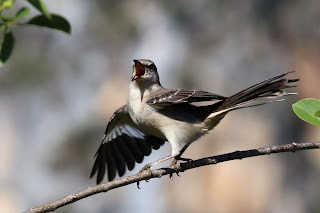 |
| By Grandmother's Sickbed, Michael Ancher, 1879, Wikimedia Commons |
Last night in my reading of Rebecca I came across a passage of the sort that, for me, takes a work of literature from the level of "good" to "great." It's a passage that can stand on its own in capturing something that rings universally true about the human condition. It's possible to read this passage out of the context of the entire story and still appreciate it. The language, setting and characters come together in a way that makes the reader say, "Yes, that's just how it is."
See if you agree.
I felt rather exhausted, and wondered, rather shocked at my callous thought, why old people were sometimes such a strain. Worse than young children or puppies because one had to be polite. I sat with my hands in my lap ready to agree with what anybody said. The nurse was thumping the pillows and arranging the shawls.
Maxim's grandmother suffered her in patience. She closed her eyes as though she too were tired. She looked more like Maxim than ever.
I knew how she must have looked when she was young, tall and handsome, going round to the stables at Manderley with sugar in her pockets, holding her trailing skirt out of the mud. I pictured the nipped-in- waist, the high collar, I heard her ordering the carriage for two o'clock. That was all finished now for her, all gone. Her husband had been dead for forty years, her son for fifteen. She had to live here in this bright, red-gabled house with the nurse until it was time for her to die.
I thought how little we know about the feelings of old people. Children we understand, their fears and hopes and make-believe. I was a child yesterday. I had not forgotten. But Maxim's grandmother, sitting there in her shawl with her poor blind eyes, what did she feel, what was she thinking? Did she guess that we had come to visit her because we felt it right, it was a duty, so that when she got home afterwards Beatrice would be able to say, "Well, that clears my conscience for three months."
Did she ever think about Manderley? Did she remember sitting at the dining-room table, where I sat? Did she too have tea under the chestnut tree? Or was it all forgotten and laid aside, and was there nothing left behind that calm, pale face of her but little aches and little strange discomforts, a blurred thankfulness when the sun shone, a tremor when the wind blew cold?
I wished that I could lay my hands upon her face and take the years away. I wished I could see her young, as she was once, with colour in her cheeks and chestnut hair, alert and active as Beatrice by her side, talking as she did about hunting, hounds, and horses. Not sitting there with her eyes closed while the nurse thumped the pillows behind her head.
"We've got a treat to-day, you know," said the nurse, "water-cress sandwiches for tea. We love water-cress, don't we?"
"Is it water-cress day?" said Maxim's grandmother, raising her head from the pillows, and looking towards the door. "You did not tell me that. Why does not Norah bring in the tea?"
"I wouldn't have your job, Sister, for a thousand a day," said Beatrice sotto voce to the nurse.
"Oh, I'm used to it, Mrs. Lacy," smiled the nurse, "it's very comfortable here, you know. Of course we have our bad days but they might be a great deal worse. She's very easy, not like some patients. The staff are obliging, too, that's really the main thing. Here comes Norah."
The parlour-maid brought out a little gate-legged table and a snowy cloth.
"What a time you've been, Norah," grumbled the old lady.
"It's only just turned the half-hour, Madam," said Norah in a special voice, bright and cheerful like the nurse. I wondered if Maxim's grandmother realized that people spoke to her in this way. I wondered when they had done so for the first time, and if she had noticed then. Perhaps she had said to herself, "They think I'm getting old, how very ridiculous," and then little by little she had become accustomed to it, and now it was as though they had always done so, it was part of her background. But the young woman with the chestnut hair and the narrow waist who gave sugar to the horses, where was she?
From Rebecca, by Daphne du Maurier, Chapter 15
Edited to add: I didn't like the way this book ended. But I still appreciate the writing in many parts of it.













